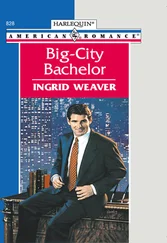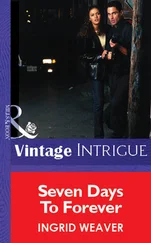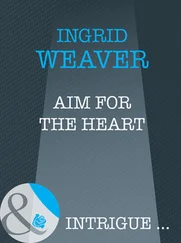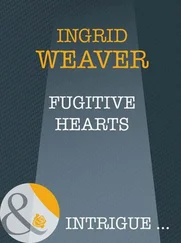Romantic?
Yeah, sure. There was as much chance of rekindling their romance as there was of finding her painting.
CHAPTER THREE
“I CAN’T BELIEVE you lied to him,” Jenny said. “How can you expect him to do his job?”
Amelia finished paring a carrot and handed it to her sister-in-law. Timmy was down for his afternoon nap, so the house was unusually peaceful. Sporadic hammering came from the backyard, where Owen and Eric were attempting to construct a fort with the scrap lumber and drywall from Will’s basement renovation project. Rather than relaxing, Jenny was taking advantage of the lull to get a head start on dinner...and to speak her mind. “I didn’t actually lie,” Amelia said. “I just omitted certain facts.”
“Same thing.”
“He doesn’t need to know about the lottery ticket in order to find the painting.”
“I’m surprised Hank agreed to work for you at all.” Jenny placed the carrot on the cutting board and began chopping. “If I recall, you two didn’t part on the best of terms.”
“That was more than a decade ago. He’s a professional. This is business.”
“Didn’t he think it was a little odd for you to make such a fuss over a worthless old painting?”
“I said it was important to me.”
“You must have been very convincing.”
“Well, it is important.”
“At least you told him the truth about that much.”
“I actually told him more truth than I’d meant to.”
“How so?”
“He seemed as if he was about to refuse me, and I was feeling desperate. I got into how much I’ve lost lately.”
“Ah.”
“I didn’t set out to play on his sympathy, but he probably feels sorry for me anyway.”
“I’m not so sure. Is it possible he still cares about you? That would explain why he took your case.”
“No, Jenny. What we had was only puppy love. It died a long time ago.”
“Hmph.”
Jenny’s skepticism made her flinch. Hank had agreed the past was over and done. Their new relationship was purely business. Well, business between old friends.
But how businesslike was it to work for free? And what about that moment this morning in his office when their hands had touched?
The years had been more than good to Hank Jones. He’d reached his full height of six foot three by tenth grade, but he’d been lanky, to put it kindly. Now his frame had fleshed out into the classic, broad-shouldered, slim-hipped, male silhouette of underwear models and Hollywood hunks. He’d grown into his face, too. The angled jaw and sharp features that had seemed harsh on a boy looked good on a man. Okay, more than good—spectacular, particularly when he smiled. He likely did that a lot, since laugh lines crinkled the corners of his light brown eyes. His sand-colored hair was streaked blond by the sun and was as thick and straight as ever. It was too neatly trimmed to fall over his collar anymore, but he hadn’t been able to tame it completely. The same stubborn, endearing lock that used to fall over his forehead still did.
But Hank’s appearance was irrelevant. Amelia had other priorities here, namely fifty-two million and change worth of them. She wasn’t interested in any man, and especially not one who had so thoroughly broken her heart. The bump in her pulse from their parting handshake was because she’d been in an emotional state over losing the ticket. That’s why she’d opened up to him about her feelings, too. It couldn’t have anything to do with her old crush on him. That would not only be absurd, it would be self-destructive and stupid. She rinsed off another carrot and applied her energy to the parer.
“Did I hear right?” Will asked as he moved into the kitchen doorway. Lancaster Cabinets was on summer hours, so it wasn’t unusual for him to get home in the middle of the afternoon. “You really went to Hank Jones for help?”
Amelia nodded at her brother. “I went first thing this morning.”
“That’s too bad. I think you should have gone to someone else.” He slipped his arm past Jenny to set his lunch pail on the counter and gave her a quick peck on the cheek. He patted her stomach. “How’s our little football player? Is he still kicking field goals?”
“She decided to take up tap dancing,” Jenny said.
Both Will and Jenny had resisted learning the sex of the baby she carried. They claimed it didn’t matter and would prefer to be surprised. For Jenny’s sake, Amelia hoped it would be a girl. “Why do you think I shouldn’t have gone to Hank, Will?”
Her brother crossed his arms and leaned one shoulder against the doorframe. “Jones likes to play private eye. That business of his is a farce.”
“What do you know about his business?” Amelia asked.
“Most of his work comes from his father, when he isn’t out fishing. He checks out customers who want to buy a car from the old man’s lot on credit. In my opinion, it was his daddy’s way of putting him on the payroll, since he couldn’t make it as a car salesman. It’s not much different from getting an allowance.”
That didn’t sound like the Hank she’d known, but people could change. Had she made another mistake? “I hope that’s not the case,” Amelia said. “I went to Hank because I thought he would be a good detective.”
“Are you sure that’s the only reason you went to him?” Jenny asked. “Maybe you still have some of the old feelings left, too.”
“Absolutely not. I told you, that’s completely over,” she said firmly. She returned her attention to Will. “Are you sure about Hank’s business? From what I remember of his character, being a private investigator would suit him. He’s observant, and he thinks everything through. He’s thorough and methodical.”
“You mean slow,” Will said.
“He’s tenacious,” Amelia said.
“He’s a stubborn idiot.”
Jenny pointed her knife at Will. “That’s too harsh. It wasn’t Hank’s fault that your truck loan fell through last year. It was because Mr. Lancaster had laid everyone off.”
“Temporarily. We were hired back when he got more orders. I told Hank we would be.”
“You’re not being fair, Wilbur, and you know it.”
Will muttered something under his breath. He hated being called Wilbur.
“If anyone was an idiot,” Amelia said, “I was for losing that ticket. If I hadn’t tried to be smart by sticking it in that frame, I could have bought you five new trucks by now.”
There was an awkward silence. Will was the first to break it. “I’ve been wondering about that,” he said. “Why did you store the ticket in the painting? I’m not criticizing you or anything, but it’s not where most people would put a lottery ticket.”
“I thought it was a safe place.”
“Remember how Timmy emptied her purse?” Jenny asked. “And Mae had to replace her paycheck?”
“Oh, right. Sorry about that, sis.”
“There was more to it than that, Will,” Amelia said. “The main reason I thought of using the painting is because it reminded me of the wall safe Spencer had installed in our condo. It was behind the Kandinsky.”
“The what?”
“The painting in our dining room.”
“You mean the blue and yellow one with the weird zigzags?”
Amelia nodded. That was one way to describe Wassily Kandinsky’s Expressionist style. Spencer had bought the artwork primarily as an investment. It had turned out to be the most valuable piece in their collection and worth almost as much as the condo. It had nothing in common with the amateurish landscape that had hung in Will and Jenny’s back room, except for its function. “I used Jenny’s painting because I regarded it as the poor woman’s version of Spencer’s wall safe.”
Will snorted a laugh. “I get it now. That sounds like something you would do.”
Читать дальше












